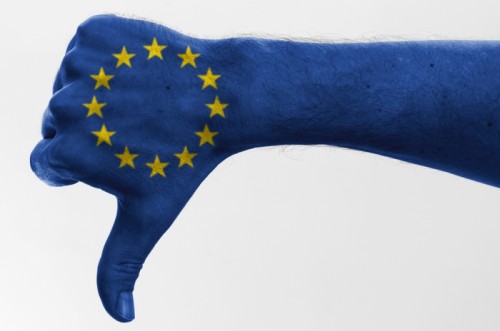What is the future of the EU?*
Fear grows in the EU – the middle class in the western European societies would like to know whether their children will live well as they did. Since the end of the WW 2 the progress in Europe was evident, however, many people think now that this progress has come to an end. Plus: there is a fundamental self doubt which started with the Irak-war after the September 11. That war was justified with a lie because of the fear of the terrorism. It has now its consequences. The danger of the terrorism is now greater than ever before and it makes the European identity crisis even worse. The terrorists have a clear perception of how the society should look like, while the EU has not finished its identity and it is now endangered. Many people in Europe believe that the EU is partly responsible for the crisis, especially for the economic problems. The populist politicians take advantage of this. All of them – Marine Le Pen in France, Geert Wilders in Holland, AfD in Germany and FPÖ in Austria – they all have one thing in common: they all agree in one thing and that is everything is Europe’s fault. The EU integration was since the WW 2 based on paternalism. The founder of the EU agreed that the integration should be conducted technically until many very different societies become one greater and more complex society.
This was success until now, however, this politics needs to be overthought and modified now. The EU is in crisis, however, it
is stronger than we often think. And yes, it can fall apart. The people who reject the EU, do not think of alternate solutions. What will happen to Europe if the EU falls apart? Europe mustn’t look and go back. There is a lack of trust between the countries in the EU – they aren’t sure anymore if everyone will stick to their part of any deal. When something does not work, the old prejudices reappear. There are many people who are loud in their Europe skepticism. On the other side, the Europe enthusiasts have become silent. It is extremely important that the young people understand how difficult it was earlier, before the EU. They take all the advantages for granted. The youngsters do not even understand the concept of the “border”. They do not know what that is. And we live in the Europe where some 50 years ago people were killed just because they were Jewish. We should’t drop everything that was achieved in the meantime.
A new politics needs to be defined in a world that is not hermetically closed. The EU needs to concentrate first on couple of
issues, like the refugee crisis, internal European digital market and green energy. The EU should stop promising this and that.
Refugees should be considered as a chance and not as a danger. The institutions should become more humble, while the European people should start dreaming big again and rethink the concept of “freedom, equality and brotherhood” for the 21. century.
*Interview with Frans Timmermans for “Die Zeit”, April 28, 2016. Frans Timmermans – the First Vice-President of the European Commission (he is involved in everything that happens in the EU). He speaks fluently 6 languages.


